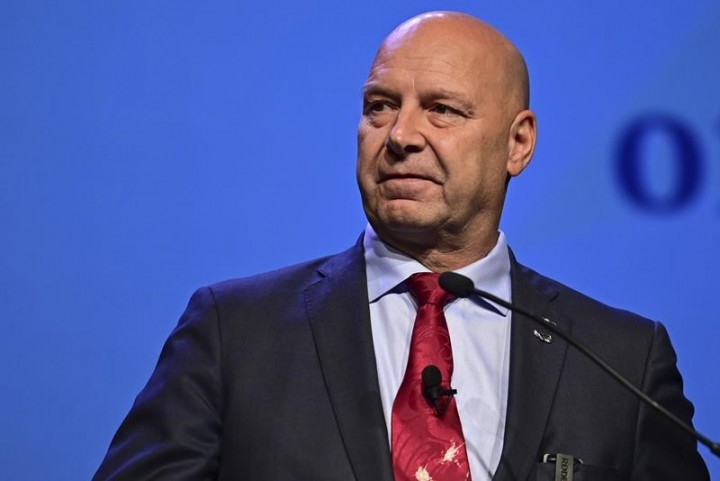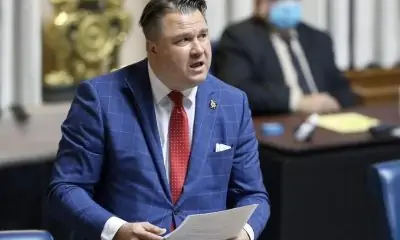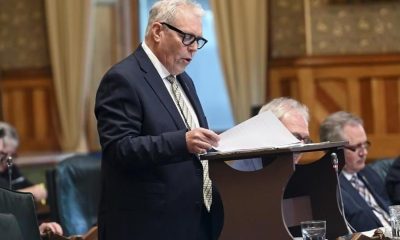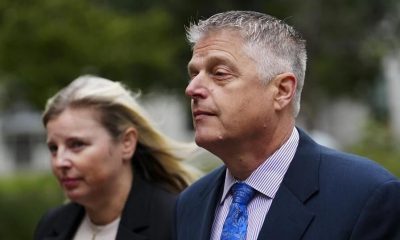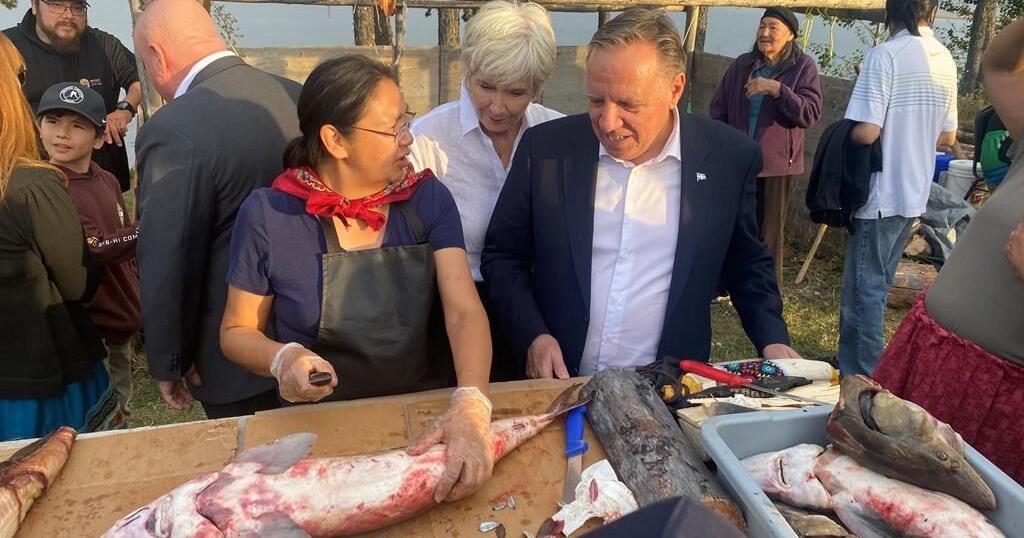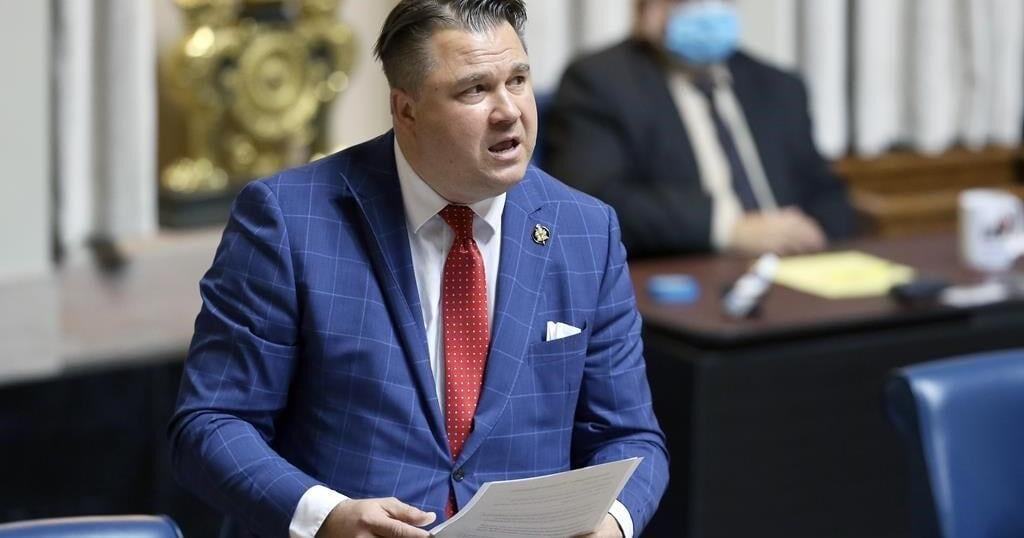HALIFAX — A high-profile ally of former U.S. president Donald Trump is at the centre of an academic controversy at the University of New Brunswick, where the administration has promised an independent review of how he received a PhD in 2013.
Doug Mastriano, a retired U.S. army colonel, was a little-known state senator in Pennsylvania until he took an active role in the movement to overturn Trump’s 2020 election defeat. In May, with Trump’s support, he won the Republican nomination to run for state governor, catapulting his far-right campaign into the national spotlight.
On Sept. 9, Mastriano’s academic credentials from UNB were called into question when The Associated Press reported allegations from scholars asserting that his doctoral dissertation was plagued by factual errors and amateurish archeology.
Mastriano has yet to publicly respond to the allegations. Calls to his Pennsylvania offices — in Chambersburg and Gettysburg — were not returned.
Richard Yeomans, a PhD candidate in UNB’s history department, said students on the Fredericton campus want to know what the university is going to do to uphold its academic standards.
“I think that everybody is just shocked at the fact that the department has said nothing since this became an international news story,” Yeomans said in a recent interview. “The university has chosen to save face rather than come to terms with what this means. A certain level of trust has been breached.”
Yeomans said graduate students have raised their concerns with the chair of the history department, Lisa Todd. Todd did not respond to a request for an interview.
Earlier this month, the university issued a statement acknowledging the allegations against Mastriano were causing “concern or confusion” among students, alumni and the public.
“UNB has a clear policy for dealing with any allegations of research misconduct,” the statement said. “UNB will review its internal processes to ensure our systems and policies around the awarding of PhDs remain of the highest standard.”
The Oct. 6 statement said the review would be conducted by two independent academics, but there was no indication of a deadline or if the results would be made public.
Jeffrey Brown, a history professor at UNB, said he was among the first to raise red flags about Mastriano’s dissertation in 2012-13, which focused on U.S. army Sgt. Alvin York, a highly decorated First World War infantryman. As a member of the examining board that reviewed Mastriano’s work, Brown said he identified problems early on.
“Through subsequent drafts, those problems did not disappear,” Brown said in an interview last week. “It became evident that Mastriano wasn’t really taking my suggestions seriously.”
He said the main problem with Mastriano’s 500-page paper was that it relied too heavily on a 1928 autobiography that has been called into question by other historians for being a simplistic portrait that glorifies York’s life and battlefield exploits.
Brown, who has taught at UNB for 21 years, also cited shortcomings with an archeological dig Mastriano led in France before enrolling in the PhD program, which Mastriano claimed unearthed the site where York defeated an entire German machine-gun battalion in October 1918. The professor said two qualified experts had come forward in 2008 to dispute Mastriano’s findings.
In an internal examiner’s assessment submitted Feb. 8, 2013, Brown told Mastriano to recognize that the two researchers — geoscientist Thomas Nolan at Middle Tennessee State University and historian Michael Birdwell at Tennessee Tech University — had located the battlefield at a different site.
“These scholars explicitly reject Mastriano’s findings,” the assessment says. “Mastriano makes no mention of this debate in his dissertation.”
After Mastriano provided final revisions to his paper in April 2013, Brown submitted a letter to the dissertation supervisor, Marc Milner, saying he was considering removing his name from the paper.
“Doug (Mastriano’s) revisions may have spoken to some of what disturbs me about his work, but they have not diminished my concerns about its fairness and scholarly integrity,” says the letter, a copy of which was provided to The Canadian Press.
“The charge of dishonesty, in fact, is everywhere in the letters of concern we have both received from people who believe that Doug’s dissertation should not be accepted by UNB.”
According to Brown, Milner told him his input was no longer required because the examining board had enough members to proceed. Brown said he expected his name would be removed from the paper’s final draft, but that didn’t happen. Mastriano was awarded a PhD later that year, and the paper was subsequently used as the basis for a 2014 book by Mastriano.
Milner could not be reached for comment.
James Gregory, an instructor and PhD candidate at the University of Oklahoma, said he became concerned about Mastriano’s work after he cited a passage from the 2014 book in an article. Gregory received messages indicating the material was questionable and decided to have a closer look at the book.
In January 2021, Gregory submitted a list of 15 issues he found to the publisher, the University Press of Kentucky. And he followed up by requesting the original dissertation from UNB.
“No one would tell me where it was,” Gregory said in an interview last week. Eventually, he was told the paper had been placed under an embargo until 2030, which the university later admitted was a violation of UNB regulations that allow for only a four-year embargo.
After the dissertation was released in August of this year, Gregory discovered Mastriano had attached a list of 21 corrections, some of which addressed his original allegations.
But upon reviewing the dissertation, Gregory sent a report to UNB this month documenting 213 allegations of academic misconduct. “His dissertation and subsequent book are built upon falsified research,” Gregory’s latest report alleges.
As an example, Gregory points to a citation for a passage that describes in detail the weather conditions in France’s Argonne forest as an investigation began into York’s battlefield heroics. According to Gregory, the cited source is a telegram that includes nothing more than a brief travel itinerary.
“The university needs to do something,” said Gregory, author of “Unravelling the Myth of Sgt. Alvin York,” to be published in December.
“They either need to come out and say Mastriano’s dissertation is perfect example of the standard we uphold here at UNB, or they need to do something about it. There’s no way this should have passed.”
This report by The Canadian Press was first published Oct. 18, 2022.
— With files from The Associated Press
Michael MacDonald, The Canadian Press
Related

